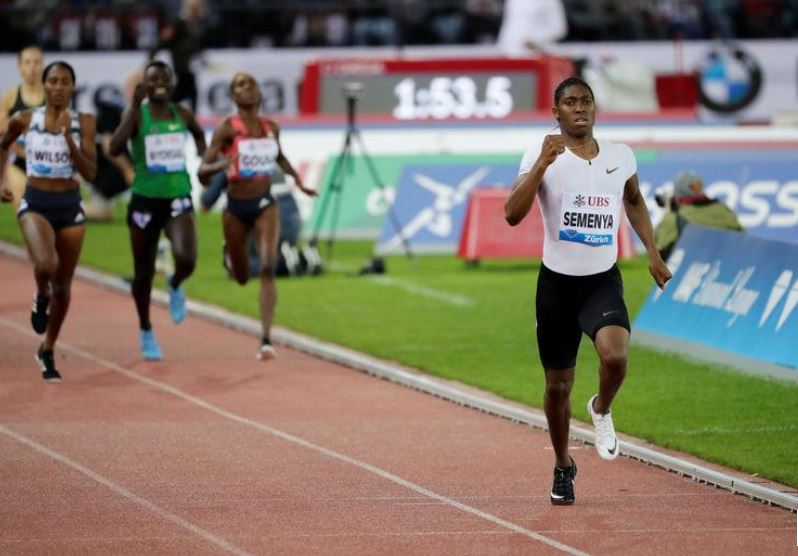The International Association of Athletics Federations (IAAF) said on Tuesday it will delay the implementation of its new eligibility rules for female classification due to the legal challenge by South Africa’s Caster Semenya.
The regulations would require the double Olympic and triple world 800 metres champion to take medication to lower her higher than normal levels of naturally-produced testosterone over a period of six months before being allowed to compete.
Some female rivals had complained that the 27-year-old’s hyperandrogenism gives her an unfair competitive advantage.
Testosterone is a hormone that increases muscle mass, strength and haemoglobin, which affects endurance.
Semenya challenged the legality of the rules at the Court of Arbitration for Sport (CAS) earlier this year.
The IAAF’s new classification criteria for athletes with a Difference of Sexual Development (DSD), which covers events from 400m to one mile, was due to be applied from Nov. 1.
But the IAAF said in light of the ongoing proceedings, the rules would instead be scheduled for implementation after the CAS decision, which is expected by March 26.
“The IAAF remains very confident of the legal, scientific, and ethical bases for the Regulations, and therefore fully expects the Court of Arbitration for Sport to reject these challenges,” the athletics body said in a statement.
“However, the IAAF also understands that all affected athletes need certainty on the point as soon as possible.
“Therefore, in exchange for Ms Semenya and the ASA agreeing to an expedited timetable, the IAAF has agreed not to enforce the Regulations against any athlete unless and until they are upheld in the CAS award, which is expected on or before 26 March 2019.”
In a statement, Athletics South Africa (ASA) welcomed Tuesday’s announcement and said it expected the CAS hearing to take place from Feb. 18-25.
“ASA is very pleased with the outcome and accordingly thank the legal teams of ASA and that of athlete Caster Semenya for the hard work done to date,” an ASA statement said.
“The ASA appeal of the regulations is based on a number of points including its discriminatory effect on female athletes like Semenya. The South African legal team will also argue that the medical data relied upon by the IAAF is flawed.”
Should the regulations be applied, Semenya would miss the majority of the 2019 outdoor season before the start of the world championships in Doha in September.
Although the IAAF says Semenya’s elevated testosterone levels give her an unfair advantage, it denies that the new rule is directly aimed at the South African.
“Prolonging the uncertainty for athletes looking to compete in these distances (400m to the mile) next year and beyond is unfair and so we have reached a compromise with the claimants,” said IAAF President Sebastian Coe.
“We have agreed not to enforce the regulations against any athlete until the contested regulations are upheld. In exchange, they have agreed not to prolong the process. All athletes need this situation resolved as soon as possible.”





